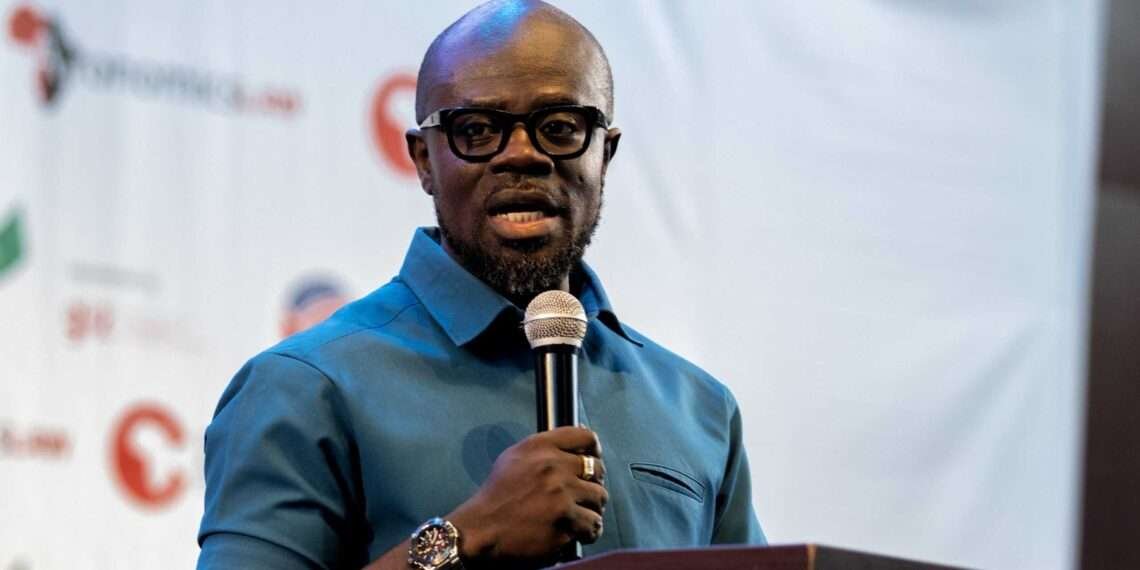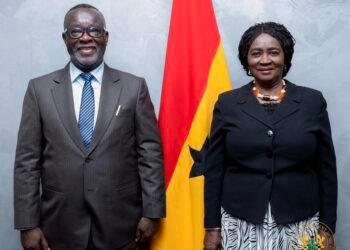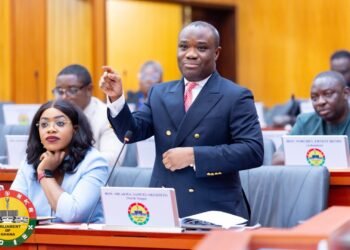Professor Kofi Abotsi, Dean of the University of Professional Studies, Accra (UPSA) Law School, has ignited a critical debate regarding the constitutional provisions related to Members of Parliament (MPs) who switch political allegiance or choose to run as independent candidates.
According to Prof. Abotsi, any individual—be it a citizen, a fellow MP, or a political entity—can report an MP who crosses the parliamentary floor or runs as an independent candidate, as such actions may violate constitutional provisions.
In an interview, Prof. Abotsi argued that the responsibility of ensuring that MPs adhere to constitutional rules lies not solely with their political parties. Instead, it is the duty of all Ghanaians to uphold the constitution.
His central argument is that MPs, by virtue of their role, are “agents of the constitution first” and only “secondarily agents of their political parties.” He emphasized that political parties are merely vehicles through which individuals enter Parliament, but the constitution remains the supreme authority governing their actions.
Prof. Abotsi referenced elementary principles of constitutional law, stating, “The Constitution says whoever is in violation of the Constitution is void.” In essence, if an MP engages in actions deemed unconstitutional—such as crossing the carpet or running as an independent candidate—that individual’s actions are automatically void, regardless of whether a formal complaint has been lodged by their political party.
The crux of Prof. Abotsi’s position lied in the ability of any individual to report such violations. He clarified that if an MP continues to hold their seat after taking actions that are considered unconstitutional—such as joining a different political faction or contesting elections independently—then that MP is sitting “unconstitutionally” in Parliament.
“Whether or not a party reports,” he argued, “the person would have been sitting unconstitutionally.”
According to Prof. Abotsi, the constitutional breach committed by such MPs is significant enough to allow for reporting by any concerned citizen, fellow MP, or non-parliamentarian.
“MPs can do that, the parties can, non-members of Parliament, ordinary Ghanaians can petition the Speaker of Parliament to ensure that such an anomaly is rectified.”
Professor Kofi Abotsi, Dean of the University of Professional Studies, Accra (UPSA) Law School,
This interpretation broadens the scope of who can act in such cases, suggesting that political parties may not always be motivated to report violations—especially if internal party dynamics create incentives for silence. In these situations, citizens and MPs themselves could step in to ensure compliance with constitutional principles.
Prof. Abotsi’s analysis is grounded in Article 97 of the 1992 Constitution of Ghana, which deals with the circumstances under which an MP may lose their seat.
While Article 97 includes provisions related to an MP crossing the floor (switching parties) or declaring an independent candidacy, Prof. Abotsi pointed out that the article does not specifically require a political party to lodge a complaint in order to activate the process.
The constitution, he argued, stipulates that the MP in question should primarily report themselves as having violated the constitutional requirements, making the act of reporting a “secondary” step.
Prof. Abotsi acknowledged that there could be valid reasons for a political party not to report an MP who crosses the floor, including internal political calculations. As a result, he contended that citizens must also be empowered to act in such situations to prevent constitutional violations from going unaddressed.
Prof. Abotsi’s assertions have raised important questions about the balance of power between political parties, MPs, and citizens when it comes to constitutional accountability. His interpretation suggested a more active role for ordinary citizens and MPs in holding Parliament to constitutional standards.
As Ghana’s political landscape evolves, these discussions will shape the future of parliamentary democracy in the country.
READ ALSO: Israel Says Hamas Chief Killed























